- From Faith Current: “The Sacred Ordinary: St. Peter’s Church Hall” - May 1, 2023
- A brief (?) hiatus - April 22, 2023
- Something Happened - March 6, 2023

Beatle biographer Philip Norman is writing a new McCartney bio.
The New York Times reports that Philip Norman has been signed to do a new McCartney bio.
One part of me: all right!
Other part of me: oh no.
Philip Norman is an excellent writer, with a beyond-thorough grounding in the subject. There is nobody who possesses better tools with which to create the definitive biography of Paul McCartney. He’s very smart, knows England of that period, knows rock, knows London, knows The Beatles, knows John Lennon. Unlike Miles, he’s his own man; unlike Lewisohn, he’s a journalist.
Shout: The Next Generation?
But Philip Norman has also shown himself to be remarkably unsympathetic to Paul McCartney in particular, and unperceptive about his gifts in particular. It’s been decades since I read it, but as I recall Shout! was so anti-McCartney as to be irresponsible. (In the Times article, Norman’s quoted thusly: “I was accused of being anti-Paul in ‘Shout!’ and I did afterward feel that I’d been unfair to him.”) Because parts of it were so good, Shout! codified the anti-McCartney lean of most Beatles writing for the next twenty years. The last thing we need—especially if we’re ever going to intelligently appraise and appreciate McCartney while he’s still alive—is a biography like that.
Furthermore, Norman’s getting worked over by Yoko Ono during his Lennon bio (TL;DR: “Tell exactly the story I want you to tell. OK, now I’m going to crap all over your book in the press”) suggests to me that he is susceptible to preconceptions. Lennon and his widow have a reputation for honesty and integrity, so Norman was blindsided when Yoko acted like a typical billionaire. What will Norman do when information on McCartney doesn’t fit with his preconception of Paul as an image-obsessed lightweight? Will he recalibrate, or ignore?
With somebody as rich, famous, and overexposed as McCartney, a biographer needs to be almost Olympian—David Remnick, Tom Wolfe—to get to the real story, whatever it might be. Otherwise, you’d fall prey to the same levers that work on every other journalist, either the desire to destroy (courting sales with controversy) or the desire to fawn (courting sales with exclusive access). What did Norman get in exchange for not challenging the Ballad of John and Yoko? Did it make for a better bio, do you think? Do you think it will make this one better?
According to Norman, “[McCartney] is not directly co-operating, but not objecting to my interviewing close friends, colleagues, etc.” Norman calls that “tacit approval.” I’d call it, “not wanting to come off like a jerk, especially to a guy who’s all-too-willing to skewer you for that.”
So:
All right! New McCartney bio!
Oh no! New McCartney bio by Philip Norman!
Opinions?
PS—When I typed “Philip Norman on Paul McCartney” into Google, this appalling column in The Daily Mail is what I got. This is my worst nightmare of what this biography will be: Fleet Street nasty, and strangely resentful towards Paul, accusing him of things that Lennon gets a pass for. Example:
Like many others in your superstar firmament, you have the ability to shrug off uncomfortable truths, abetted by the legions of yes-men with whom you surround yourself and whose sole function is to tell you that you are infallibly wonderful every day of your life.
“How Do You Sleep”, right? Later, Norman slams the 61-year-old McCartney for using hair dye—but could you imagine Norman skewering the 40-year-old Lennon for the haircuts that concealed his receding hairline? No, and rightfully so, because it’s schoolyard stuff.)
Please, Mr. Norman: do this book right. You can do it, I know you can, and it’s more important than your book on John Lennon. We already knew who John was; we don’t know who Paul is, even now—and that could be the kernel of rock’s Citizen Kane.

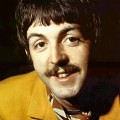
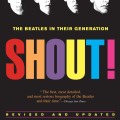
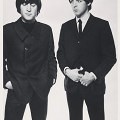

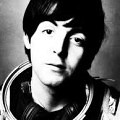

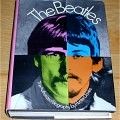
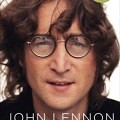
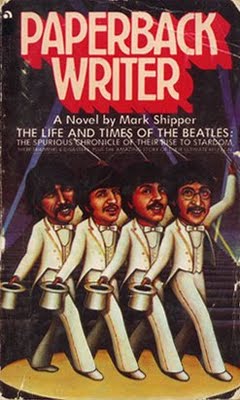

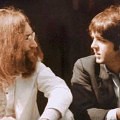
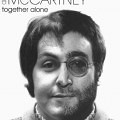
I think I know where you’re coming from, Michael.
Personally, I have no problem with the idea of Norman criticising Paul. And I won’t mind if it’s not the story of how Paul didn’t get the recognition he deserved for keeping the band together as long as he could, caring more about the Beatles than the others, introducing avant garde etc, etc. I don’t expect that will be the theme, and I don’t think it should be because that ground has already been covered and entered into ‘meme’ territory, in my opinion.
However, my hopes aren’t high for Norman’s book being the Macca bible. Why? Not because it won’t give Paul his dues (it might not), or because it will be critical of him (it certainly will), but because it will be critical of him in the wrong way – in the same old way we’ve come to expect. I suspect it will point out all Paul’s flaws that we already know about.
Yes, we know Paul isn’t good at self-editing. Yes, we know Paul’s work sometimes lacks substance. Yes, we know Paul is a bit too keen to be liked. Yes, we know Paul can be overbearing and difficult to work with.
But tell us something we don’t know.
And obviously we know a lot of the good stuff, too. His genius is literally beyond question (although it’s true that Norman has been guilty of underrating him in the past – and he probably still does, although I can compensate for that when I read his work). And we know he’s a great family man, etc.
But again, tell us something we don’t know.
I’m not sure Norman will.
Hope I’m wrong, though. But reading that terrible Daily Mail (*spit*) article, those hopes aren’t high.
Peter–That was my problem with the Lennon bio. It was a very nicely written, well-constructed version of what we already know. Unlike Shout!.
Yeah, that Daily Mail piece was shockingly vitriolic. Do you think Paul suffers a bit from the English tendency to “hammer the nail down”?
What an interesting post Michael. I have to say upon hearing this news, I’m more in the “Oh no” category than the “all right!” category. Shout practically turned me against Paul until I did my own research years later. Yes there were parts of Shout that were very good, and yes Norman is a good writer. But as a biographer on Paul he is going to have to completely change his attitude and pre concieved notions, if this book is going to be anything other than a disaster. Well said that Shout “codified the anti-McCartney lean of most Beatles writing for the next twenty years”. I agree completely. So unless he has come into the 21st century on his thinking, I have a bad feeling about this. I will say however, that since he talked to Paul during the writing of his Lennon book, he does seem to have adjusted his attitude, grudgingly admitting that Paul is a “decent man.” So who knows?
I had mixed feelings when I read about Norman’s plan to do this biography — and then you pointed out that astonishingly vitriolic Daily Mail column, Michael. That makes me think there’s no way this guy has gotten over the RSV version of the Lennon/McCartney story he helped create in “Shout!”
Could someone tell him that Howard Sounes has already written a long, unsympathetic, musically uninsightful biography of McCartney, and that another is superfluous?
The ONLY biography of McCartney I’d be interested in reading is one that grapples with his musical achievements in a substantive way — and that entails understanding and appreciating a good bit of his work. And that Norman seems constitutionally incapable of doing. Note that I’m not wanting a biographer to give McCartney a pass, but to connect with the best he’s done and offer some illumination of it.
I wish Norman would write a biography of another musical figure he does appreciate instead. *Sigh*
Thing was, Nancy–I didn’t go looking for it. It’s literally the FIRST THING that comes up when you search Norman on McCartney. I get why the editor bought it–“He’s written bios of The Beatles and Lennon, they both sold well, let’s have him do McCartney”–but were I in that acquisition meeting, I’d have pointed out just what you did. We’ve already got one of those. It’s a seemingly good idea that, unless Norman really changes his M.O., will result in a turkey of a book. Like Albert Goldman writing on Princess Diana. Seemingly sexy idea, which nobody wants.
Here’s my deal with Paul these days: I think he’s an incredibly complex person who has protected his privacy under impossible circumstances by seeming to be simple. He’s only seemed to show us who he is. The happy chappy is only a part, a facet, and I think that is at the heart of Norman’s vitriol. Norman thinks McCartney is putting something over on all of us–but that’s the typical Fleet Street idea that
1) everybody’s corrupt or a bastard if you dig; and
2) it’s some sort of GAME. You hide, I seek.
But see, it’s not a game. We don’t have a right to anything but the music Paul releases. All The Beatles feel/felt this way; and John Lennon did exactly the same thing McCartney does: present a persona based on one facet of his personality.
Norman liked John’s persona because it sells papers and made Norman think he was winning the game. (It’s the same “I got the real story” macho that makes Hunter Davies not admit that his 1968 bio is a whitewash.) I say this as somebody who’s been interviewed at length by British journalists. The only thing that really puzzles them is positivity and guilelessness. It used to make me laugh. “C’mon Mike, don’t you really HATE Harry Potter? What’s the REAL story?” “Dude, it’s 3am where I am–I’m too tired to lie.”
Do I think Paul’s probably got some very unappealing characteristics, if you got close enough? Almost certainly; his life has distorted the hell out of him, as it did J/G/R. But I am so tired of people dismissing him as if he were, say, Billy Joel. He would be Billy Joel if you took away ALL The Beatles’ stuff, and a good bit of the more interesting solo stuff, too. In a world where comic books are art and art is plexiglas sharks (ie, a world where the high/low divide no longer exists), the rock press’ criticism of McCartney as “lightweight” is mostly based on rock criticism’s own desperate need to be taken seriously, which at this late date can only be rooted in the fact that most of it isn’t really worth taking seriously.
Michael – “He’s only seemed to show us who he is. The happy chappy is only a part, a facet, and I think that is at the heart of Norman’s vitriol.”
I think you’re on the money there. Although I think the problem with many other critics of Paul is that they see the thumbs-up Macca and decide that really is all there is to him. If Norman does indeed see that it’s a superficial act that only serves to hide the real Paul, then I suppose there is hope his book will attempt to dig deeper.
“Could someone tell him that Howard Sounes has already written a long, unsympathetic, musically uninsightful biography of McCartney, and that another is superfluous?”
Precisely! Part of me thinks this is just going to be another hatchet job. Norman hasn’t given any indication that he understands or appreciates Paul as a solo artist let alone that he understands or appreciates Paul as a person.
I wanted the biographer who gave us a definitive account of Paul’s life to be someone who actually liked him. Not a fanboy like Norman was for John Lennon. But it would be nice if Paul’s biographer actually respected and admired him. It would be nice if that biographer appreciated and understood the best of Paul’s solo work, without being an apologist for the worst of it. Does Norman understand the wonder of Ram? Or the compelling weirdness of McCartney II? Or the late-career beauty of albums like Chaos and Creation and Electric Arguments? There’s no evidence for that.
This news sort of dismays me.
— Drew
This might be the perfect moment to launch my reverse-Kickstarter site, HushMoney, designed to discourage people from completing proposed projects.
I’d contribute a goodly amount towards an incentive for Norman to find another subject for his next biography, and I suspect I’m not alone.
I wish someone who was primarily interested in the music would write a bio of McCartney: someone like George Starostin or Allmusic’s Steven Thomas Erlewine. One reason Norman is such a Lennon guy is that Lennon was a great wordsmith, not only in lyrics but also in interviews. Writers trade in words, and Lennon gives plenty of great, easy-to-access material.
McCartney, on the other hand, is primarily a sound guy. It’s not accidental that he’s recorded many instrumental or near-instrumental pieces, ranging from “Hot as Sun” on “McCartney” to albums like “Rushes.” He can write good lyrics as well — more than he’s typically given credit for — but the melody, harmony, and soundscape are huge for him, and a writer who doesn’t get that won’t get him. Nor will a writer who equates authenticity only with Lennon’s brand of self-revelation. Nothing I’ve seen makes me think Norman has the imagination, inclination, or patience to unravel the ways McCartney reveals himself more indirectly in his music.
Why does Norman want to do this biography? I’d genuinely like to ask him.
Paul “can write good lyrics as well — more than he’s typically given credit for — but the melody, harmony, and soundscape are huge for him, and a writer who doesn’t get that won’t get him. Nor will a writer who equates authenticity only with Lennon’s brand of self-revelation. Nothing I’ve seen makes me think Norman has the imagination, inclination, or patience to unravel the ways McCartney reveals himself more indirectly in his music.”
Oy. Nancy, you’re absolutely right. I doubt Norman is capable of understanding Paul, let alone appreciating his approach and strengths as an artist.
— Drew
I am a history teacher, and one of the axioms of history I was taught in graduate school is that the best histories/biographies are written forty years or more after the subject dies.
We as students of McCartney still need time to lend perspective to what his life and his musical output represented. His is still a work in progress, and as long as he continues to contribute to the musical and cultural record, no biographer can claim to write the “definitive” story of Paul McCartney.
I would submit to you that the 1960s have barely “happened” yet in terms of what historians know about the time period.
Great comments, folks.
Is there anybody out there that thinks Norman’s the perfect guy for the job? If so, chime in.
Said it before, but it always bears repeating: journalists loved Lennon because they desire not truth or wisdom, but good copy that sells papers. John knew that, and knew that if he gave them juicy quotes, he could use them to create any narrative that was useful to him (and Yoko).
Lennon’s brand of self-revelation was mostly bullshit–and we can see this clearly because real revelations demand action. Now that we have a fairly full picture of John’s activities, we can know that Lennon gave interviewer after interviewer were surface insights that allowed him to appear brave and interesting and thoughtful, but did not force him to change in any meaningful way. And that’s great for the media, because they too deal in material that seems brave and interesting and appears thoughtful but does not lead to change in any meaningful way.
@JR, I love that axiom about history, and think it’s generally correct, but it remains to be seen whether historians will dig out the reality of the 60s. They were and are such a politicized time, and to date historians have shown very little stomach for challenging the status-quo reading of the time. (I’m speaking of American historians in particular; I don’t know about other countries.) Through the mobilization efforts of WWII and then the Cold War, the American academy was largely captured/co-opted in the postwar period, and has a relationship to power slightly different than in, say, 1900 or 1930. So while we have been able to get a fairly accurate (and unsavory) picture of American labor history, American colleges and universities’ coziness with–in fact dependence on–the military/industrial/financial complex will almost certainly skew what we receive. Will it be Official History, in all the worst aspects of that term? Probably not–some truth will leak out, as it already has. But it won’t be a fair and honest accounting from all sources, either. And that’s a shame, because the 60s, like any period that really puts a system under stress, showed some seldom-seen aspects of how power is wielded, what our values are, etc.
Nothing I’ve seen makes me think Norman has the imagination, inclination, or patience to unravel the ways McCartney reveals himself more indirectly in his music.”
Absolutely Nancy. That’s why I think I can answer your question regarding why Norman wants to write this biography. Personally I think there are two reasons. Money and conceit. Many people believe he is the “definitive Beatles biographer” which I think is complete hyperbole. He was the FIRST Beatles biographer to attempt anything after the breakup, so that somehow linked him in the minds of the press and public with ‘definitive’. Competent writing aside, his book was extremely subjective. But if he agreed to write the bio of someone he has little respect for and isn’t even capable of understanding as an artist, then I can’t help but think that it’s because he simply believes his own press.
I have only a minor thing to contribute to this discussion—as I wholeheartedly agree with what’s already been said. What’s this about Hunter Davies being challenged on, and defending, the comprehensiveness—for want of a better term—of his 1968 biography? I didn’t know there was any sort of controversy in the Beatle world about that. It’s sort of a given that it would be whitewashed, since it was published while the group were still together, right? I thought, given that it was written in 1967-early ’68, it was surprisingly revealing, especially about John, whom we get to see in the depths of LSD-induced apathy.
-Michael
@Michael, my comment about Davies came from an interview with him and Goldman broadcast in the late 80s, where Davies (naturally) downplayed Goldman’s “revelations.” I don’t blame Davies for doing this–any rival biographer would–but I do think it’s an example of the peculiar culture of Fleet Street, of which Davies is a product.
In that pugnacious, scandal-mad environment (which creates things like that Norman editorial), the vast gulf between the gossip about the group that must’ve been circulating by 1967-68, and the book Davies published, probably made him very sensitive to criticism. Certainly Davies bridled when Lennon called the book a whitewash in Lennon Remembers–when another tack to take would’ve been, “Yes, it was authorized, and that means they–not I–had final cut.” But that would’ve been a blow to his pride as a writer.
Thanks, Michael. One of the problems with histories of the 1960s is that most authors/biographers lived during the decade and are thus biased because of their lived experience.
For example, if you born in 1942 and were a history graduate student between 1964 and 1968, you probably had a definite opinion about the Vietnam War that would be VERY hard to overcome if you were to write a history of the war even in 2013.
That’s why the forty-year rule makes sense. There are history graduate students now who were born in 1990 who have enough distance and perspective from the 1960s to be able to write an interesting yet disinterested history of the decade.
With that said, let me ask you: Do hard-core Beatles and Paul fans really NEED another McCartney biography? It seems to me that Norman is going down a VERY well-worn path.
JR, it will be interesting to see what the consensus on the 60s becomes. I think there are whole areas of the 60s that are intellectually radioactive, and that will have to die down as well before we can get a clear sense.
I actually DO think that there’s a need for a Paul McCartney biography, but not because we don’t know the events or chronology. I really do think that a person could write something the magnitude of a Citizen Kane about Paul–he’s the most popular musician in the history of music, but has managed to keep much of what makes him tick to himself. One can’t write “Yesterday” or “Let It Be” without containing, then tapping into, vast areas of sadness and regret–and yet Paul’s public persona is the Happy Chappy. Exploring that dichotomy is the stuff of great art, but it has to be sympathetic, in the way that Welles’ movie was, while brutally honest, fundamentally sympathetic to Kane.
Put it another way: Paul loved his mum just as much as John loved his, and anger and loss has driven Paul as much as it drove John. A Paul bio that’s truly 3-D would be revelatory.
Good points, Michael. After reading so many Beatles books over the years, I don’t feel Paul is much of a mystery.
In my opinion, there are two Paul McCartneys—one is public Paul, a compulsive perfectionist performer, songwriter and band member; the other is private Paul, a slightly eccentric man who craves above everything being in a close-knit romantic partnership and part of a close-knit family.
The catalyst for the creation of both Pauls, as you rightly pointed out, was the death of Mary McCartney. It propelled Paul into performance and music, and it created in him a strong desire for a stable family life.
I’ve often thought that Paul was as much attracted to Margaret Asher and the family life she cultivated at 57 Wimpole Street as he was to Jane.
I’ll write more on this topic in a sec…
Do hard-core Beatles and Paul fans really NEED another McCartney biography? It seems to me that Norman is going down a VERY well-worn path.
@J.R. Clark, Michael already answered this question below, so the only thing I would add is, no we do not need another McCartney biography but we do need…a McCartney biography. IMO and I think others here will agree, there are none to date. Michael’s points about, i.e. “One can’t write “Yesterday” or “Let It Be” without containing, then tapping into, vast areas of sadness and regret”, and “Paul loved his mum just as much as John loved his, and anger and loss has driven Paul as much as it drove John” are two areas among many that have never been explored. Drew and Nancy have pointed out many times, there are no sympathetic, honest, bios on McCartney. The ones that exist (minus MYFN of course) treat McCartney as if he were Justin Beiber or Tom Jones. There is a wonderful, two volume bio by Peter Guralnick on Elvis, that I’ve been reading. It is all of the things Michael (and I) wish for a McCartney bio. So I ask myself, why is it so hard to write one of this magnitude about Paul? He is NOT Tom Jones. He is NOT Justin Beiber. So why is he continuously treated as if he were? I don’t want another book about his paternity suits, (John and George had plenty of those as well, but for some reason they are never mentioned) or his “stinginess”,(John and George were just as “stingy” but for some reason this is never memtioned) or the Wings band members thinking he was bossy, or long passages about what a “slut”, or “groupie”, the author thinks Linda was. I don’t want a book that features Angie McCartney’s one sided, distorted stories, or one that uses Geoffrey Guiliano as a source. The books on Paul to date have been nothing more than mere fluff…tabloids, and I don’t think Norman is going to be any different. We need a ‘Guralnick’ to write Paul’s story. And yes it should be two volumes or more. And it should be all of the things (and more) that Michael has proposed. Ok this is too long so I’ll stop now.
Thanks for your comments, girl. I agree that McCartney deserves a Guralnick treatment; I don’t believe such a biography will be written in our lifetimes. Without the cooperation of Jane Asher, John Eastman, Heather, Mary, Stella, and James McCartney, Mike McCartney, John Hammel, or Ringo Starr, what are you left with?
I might add, girl, that the book you desire—“I don’t want another book about his paternity suits, (John and George had plenty of those as well, but for some reason they are never mentioned) or his ‘stinginess’,(John and George were just as ‘stingy’ but for some reason this is never memtioned) or the Wings band members thinking he was bossy, or long passages about what a ‘slut’, or ‘groupie’, the author thinks Linda was. I don’t want a book that features Angie McCartney’s one sided, distorted stories, or one that uses Geoffrey Guiliano as a source”—has already been written. It’s called Many Years From Now, and it is, to me, the best book written about Paul to date.
I wish someone would write a book about the McCartney family. The kids are as interesting as Paul and Linda. Heather is, by many accounts, mentally ill. Mary seems very content with her life, and Stella has successfully achieved her own fame outside of Paul and Linda’s considerable shadow.
I believe Stella became a fashion designer as an act of rebellion against her parents’ lack of fashion sense.
James is perhaps the most interesting of the children. Suddenly keen to follow in his father’s footsteps as a singer/songwriter in his late 30s, James is talented but lacks Paul’s looks and charisma.
I’m curious to know what happened in each of the childrens’ lives to shape their personalities.
One more thing I’d say is that a book that confirms our own personal biases isn’t necessarily a good biography. And a book that overlooks unpleasant facts or details isn’t necessarily a good biography. Personally, I’m not interested in a hagiography. (I’m not interested in a hit piece, either.)
But we can filter out the bullshit (or what we choose to believe is bullshit), anyway. What I really want are new facts and details and new quotes from key players. Without those, I don’t see the point. Over to you, Mr Norman!
Why has there not been a bio written on the Lennon/McCartney pertnership? We already have bio’s on John and on Paul.
I think this guy should write one.
http://www.slate.com/articles/life/creative_pairs/features/2010/two_of_us/inside_the_lennonmccartney_connection_part_1.html
It’s called Many Years From Now, and it is, to me, the best book written about Paul to date.
Yes J.R. I agree. Yet as good as MYFN was, there was still something missing. I think it lacked the perspective of other people. Now that you mention it, the lack of cooperation from people like Jane Asher, John Eastman, Heather, Mary, Stella, and James McCartney, Mike McCartney, John Hammel, or Ringo Starr, really is the problem. All of these people would bring so much to the table. Speaking of the perspective of other people, the one story I did enjoy in MYFN was the insider’s story on the How Do You Sleep sessions. There should have been more stories like that.
In fact, although I agree with others here that the Sounes book missed the mark, there were parts of it that were very interesting. He actually went out of his way to debunk so many myths about Paul’s personality. I think he did try to be fair in trying to portray the different facets of Paul, both good and bad. Sounes went wrong when he tried to discuss the music, revealing his cluelessness. But Sounes did speak with people who were very close to Paul like Iris Caldwell, his cousin Mike Robbins, and one of the women from The Fool, whom Paul had a brief affair with. All of those were very interesting because they showed a side to McCartney that had not been revealed in other bios.
And yes I also agree wholeheartedly regarding the McCartney family. I would love to read more about all of them. I find each one of them extremely interesting. Learning more about them would ultimately lead to a richer knowledge of Paul himself. Which leads me to another story from Sounes’ book regarding Heather falling off a horse. Please CMIIW, but I felt that it was strongly hinted (by of all people, Paul himself in front of reporters) that she may have deliberately thrown herself off the horse in a half hearted attempt at suicide. I agree she is probably mentally ill. There are so many interesting stories waiting to be told, that would give us a better understanding of who Paul really is.
@Peter, I absolutely agree that biographies worth reading can’t be either hagiographies or hatchet jobs. The major thing I look for in any biography of a performer or artist is a writer who appreciates the subject’s work and considers that work part of the text of the subject’s life.
Three of the greatest biographies I’ve read are are Peter Ackroyd on Dickens, Leon Edel on Henry James, and Winifred Gerin on Charlote Bronte. (@ J.R., hardly accidental that all these pass the 40-year test). David Leaf’s book on the Beach Boys is one of my favorite books on rock music, because he manages to tell some hard truths while conveying his love of the music and his basic respect for his subjects as people. I listen to the band differently because of his book.
As for “new facts” about McCartney: very, very unlikely that Norman will turn any up, especially since that ground has been so recently mined by Sounes. I can’t imagine that those closest to McCartney will want to cooperate with Norman, given his past statements about Paul. The only things I realistically expect to be “new” in Norman’s bio are some quotes from people who wouldn’t talk to Sounes and Norman’s interpretation of Paul’s solo work. And Norman has been so nastily dismissive of the later that I have no desire to hear him expatiate on that in more detail.
What I would like to see is “Many Years From Now II,” telling Paul’s post-60s story in more depth from his POV. That’s the only way I think we’d get anything new that’s much worth having, because McCartney is very protective of his privacy — he’d have to be working with someone like Barry Miles to open up again. Paul’s version of his own story would have to be read with the salt shaker handy, just as Lennon’s interviews must be read, but there’s nothing like hearing what the person himself has to say about his life.
Any time a biographer lacks a basic feeling for his/her subject’s work, I think there’s no reason to read it. That doesn’t mean a biographer has to pretend all the subject’s work is equally great, but that the biographer has to make an effort to understand what the subject was trying to do and give him/her the benefit of the doubt.
For example, I’d be interested in reading a biography of Yoko Ono from the POV of someone who found her best work fascinating and who had compassion for her as a human being. But that’s another book that will be tough to write, since, as Michael pointed out in an earlier post and thread, she’s very protective of her image and privacy. Pretty much like McCartney.
Yeah, I’m erring on the side of ‘uh-oh’. Shout! was bad enough (“John Lennon was 80% of the Beatles” indeed…) and whilst his Lennon bio was quite a lot better in regards to not insulting Paul (and George and Ringo for that matter) I think some of that may have had to do with the fact that Paul actually co-operated…
Anyway, this is a charming excerpt from a charming poem Norman deigned to write about Paul:
O deified Scouse, with unmusical spouse / For the clichés and cloy you unload, / To an anodyne tune may they bury you soon / In the middlemost midst of the road.
To be honest, he’s been even nastier about George, his obituary in particular was a highlight I thought. *rolls eyes*
http://pizzaandfairytales.tumblr.com/post/4662158418/philip-normans-obituary-for-george-harrison
Holy God, @Anonymous, THAT’s an obituary?
In what world–in what profession–is that considered appropriate for a man’s death? Philip Norman may be a lovely person, I like much of his work and genuinely hope that he is, but that is really shameful score-settling at precisely the wrong time. Readers of Dullblog know I don’t consider The Beatles or any other celebrity to be saintly or sacred, but obituaries–like funerals–are for those left behind, and to use that occasion to spiel out a laundry list of grievances is incredibly disrespectful, not to the dead person (he/she is dead and doesn’t care), but to all the people who cared about that person.
My question is: if he’s such a hard-hitting truthteller, why didn’t Norman write something like this in January 1981 about John Lennon? The information was all out there. This obit is Goldman-esque in how it isn’t factually wrong, it’s just unremittingly uncharitable. Goldman was clear about why his book was the way it was–he admired Lennon from afar, and when he began digging and found flaws, he became outraged at the gulf between the icon and the man. Did Philip Norman EVER admire George or Paul? It certainly doesn’t seem like it.
I’m afraid there are things that Philip Norman isn’t telling us, seeds of bias that he won’t cop to. He can’t possibly be blind to his own preferences, not when they’re this strong and thought-out. The only question is: what went down, Phil? Maybe he’s justified in hating George and Paul–maybe we would too, in his shoes. But that’s important information that he should be public about, or if he can’t do that for legal reasons, stop presenting himself as an impartial observer.
Eehrmmm.
My concern is that his true opinions have not actually changed (his past writings suggest way too much iron-clad egotism to make that a reasonable hope). I worry that his motivation here is to justify his former writings (and protect his legacy as the “premier Beatles biographer) in the wake of the ongoing sea-change in public opinion re: John v/ Paul — either by producing a truly horrific hatchet job, or by doing what is perhaps worse: writing a book carefully constructed to APPEAR fair, re-considered, capitulatory, etc., but which is imbrued with the implicit message that Paul is boring, unremarkable, unworthy of study, and that Norman really was right to despise him all these years, after all.
Please prove me wrong, Mr. Norman.
@ Annie, I fear that you may be right about Norman’s planning to write a book that will codify his dismissal of McCartney (and solidify Norman’s position as a Beatles “authority”). Only too probable, given that “obituary” of Harrison and that doggerel about Paul that Anon shared.
And Michael, I agree that the real problem is Norman’s claiming to be objective when he’s not. Great biography can’t be objective — but it had better be honest, in that the writer comes clean about his/her motivations and biases, so the reader can understand the lens through which the author is seeing the subject.
The more I see things like that “obituary” of George and that rhyme and Daily Mail piece about Paul, the less respect I have for Norman. His giving John a virtual pass on all his bad behavior actually makes Norman seem more human to me — at least there’s someone whose work and life he seems to love.
But wow, why does he feel justified in reaming George and Paul out? Interesting that Norman goes after Paul for being egoistic, power-hungry, and anxious for public attention. All traits Norman himself also seems to have.
I seriously wish it were possible to dissuade Norman from writing this biography. I can’t believe, given the durability of his sentiments over decades, that he’s suddenly going to be able to give us a decently compassionate view of McCartney or a reasonable assessment of his musical achievements.
Also: from looking around the web, Norman is apparently claiming he has McCartney’s “approval” for this biography. As Michael pointed out in the original post, that’s overstating it quite a bit — it’s more tacit recognition that Norman will write it anyway.
Sticks in my craw after Norman’s repeatedly bashing Paul as a PR guy.
@Nancy, after listening to everybody on this thread–and reading that obit AND the Paul column–I realized today that I won’t be buying that McCartney biography. (Just like I didn’t buy the Soanes one, after hearing comments from people like you.) If Norman’s book seems interesting I’ll look through it at B&N, but Norman (and Little, Brown) won’t be getting a penny from me.
I loved Shout! and respect Norman, but unless the book comes out and receives raves–meaning he’s gotten over whatever personal issue he’s got with his subject–I think I already know what Philip Norman thinks about Paul McCartney. Why read it again? What’s changed?
Word of mouth is the only thing that really sells books, even books with built-in reader bases like The Beatles. The only way for fans to hold Norman to the standard that McCartney deserves–and Norman should want to reach regardless–is to not buy the book unless it comes up to a reasonable standard. I doubt many McCartney fans believe he’s without flaws; remember that the core group has known the guy since 1963; they’ve watched him age and stumble and they’ve aged and stumbled, too. McCartney fans don’t have the sad luxury of “what might’ve been.”
Remember, Goldman’s bio of Lennon was a disappointment to the publisher. If Norman writes a similarly mean-spirited book about McCartney, his book will suffer the same fate. Figures like Lennon and McCartney simply don’t merit the big take-down; their work gives people too much pleasure, and the consequences of their bad behavior are usually personal. I’ve defended Goldman’s book–well, I’ve said I felt it was useful, and still do–but it is an example of firing a bazooka at a butterfly. The only possible justification for it might be some people’s tendency to inflate John Lennon’s saintliness; but no one does that with Paul. His flaws are plain to see, and common ones; I have a feeling that–unless Norman unearths some massive doings hitherto unknown–McCartney’s sins will simply be too small to carry a muckraker’s narrative.
Both that Daily Mail piece, and the Harrison obit harm their subjects not a bit; they do, however, make their author seem vindictive, and pointlessly cruel. An author’s first job is to make you want to spend time with him/her; and while I delighted spending time with Norman in 1982, it seems that the contemporary version is quite unpleasant, at least when it comes to The Beatles.
Michael: I’m pretty sure I won’t be buying it either.
What is the point? Norman has had 40 years to understand McCartney and yet he’s proven time and again that he doesn’t. Norman doesn’t like Paul and doesn’t like his music. So why bother to analyze and write a bio about an artist whose work you don’t understand, don’t like, and can’t connect with?
And Nancy: It IS interesting how Norman turns out to be every bit “the PR man” tooting his own horn about Paul’s “approval.”
I read a blurb in The Observer (the Guardian’s Sunday sister paper) about this book and it said this about the McCartney bio: “He promises to weigh up McCartney’s huge post-Beatles output with the same care and fairness he applied to Lennon’s much smaller one, adding that “the story of how he’s managed to remain a recognisably human being after half a century of world adulation promises to be fascinating.”
In other words: Another take on how “normal” Paul is, and little or no understanding of the man’s music or personal complexity.
Sigh.
— Drew
@Drew, I actually wouldn’t mind a book that emphasized how normal Paul seems to have stayed after 50 years of world celebrity, if doing so was put in its proper context: a huge achievement. I can’t name another celebrity at the McCartney level who’s been able to pull it off for as long as he has, and it means a tremendous amount.
Take John Lennon: for all his supposed wisdom and compassion and insight and self-knowledge, celebrity totally distorted him. He totally lost himself. And there’s a type of “fan” who likes that he lost himself.
But this achievement of Paul’s–instead of being examined, so that others can go through the experience of fame minimizing the damage to themselves and others–is considered to be the result of good PR or being a control freak. So it’s a hustle–that was the point of the column in the Daily Mail: “Finally, you phony! You’re a monster just like all the others, not the nice guy you purport to be!” Instead of “In 50 years, the number of embarrassing blowups you’ve had could be counted on one hand–even when fans are literally climbing through your bathroom window, or looking at you on the toilet. How the hell have you done this?”
That is a tale that hasn’t been told; and it’s a useful one, too. McCartney’s commitment to treating his fans decently, and remaining a recognizable human being has to be something at the very core of himself. It’s not a commitment to lying; nobody’s that good a liar. It’s not a commitment to PR; PR that isn’t based on something real sooner or later collapses. It’s a mental map, a way of dealing with fame that has been in place since 1963, and it’s worked–he’s been personally successful, artistically interesting, raised a decent family, stayed married, and mostly avoided the usual vices. We live in a society that says “nothing’s more important than family” and yet when we see a celeb who’s managed to live that value, we dismiss him as boring or a fraud.
I don’t know whether Philip Norman’s biography of Paul McCartney will be worthwhile or not, but I’d like to say that I started reading Norman’s Daily Mail column on Paul McCartney, and I felt such a strong feeling of pity that I had to stop about halfway through. It was pity towards Philip Norman and to people who think like him. Because the unspoken assumption behind the column is that entertainment celebrities owe us things: that in liking what they do, we’ve “payed” them to be heroes, and that when they show human moments of rage or dissatisfaction, they have egregiously broken some kind of contract with us. The fact is, though, that entertainment celebrities owe us only one thing: quality of work that we pay for. Nothing else. Not personality, not smiles, not autographs, not handshakes, not happy marriages, nothing. If they happen to make it a habit of giving us these things anyway, then so much luckier are we. If they give them to us and then stop giving them at some point, I suppose it’s sad, but only if you spend your life expecting things from entertainment celebrities other than their work. Paul’s “crafted public image” never convinced me to buy anything. His music did. So when cracks appear in that image, I don’t feel betrayed. If Philip Norman does, then I would recommend to him that he invest his emotions in things that are more under his control, such as his own work.
Paul McCartney’s moment of rage (if it really happened exactly as described, which it very likely didn’t) is no more relevant to me than Philip Norman’s moment of rage in writing his column.
We live in a society that says “nothing’s more important than family” and yet when we see a celeb who’s managed to live that value, we dismiss him as boring or a fraud.
Amen Michael, not only to the above but your entire comment. As usual so thoughtful and thought provoking. And no I won’t be buying his book either. He can keep his book. I hope no one reads it.
I’d only read a new bio on Paul after learning the author went thru the same epiphany I did: I recall sitting thru a first listening to of “Memory Almost Full”, and found it a very good piece of work, if suffering from some of the same problems that plague all Pauls work.
Then I came to “End of The End”. I was floored, and came upon the realization that “HERE is the man who wrote Yesterday, Eleanor Rigby and Hey Jude. He’s still there, and can still do it.” It’s an amazingly personal set of lyrics, and stands to my mind as one of Pauls best works, period. Who knew he might write a song about his own death? Well, if you added he also whistles the mid-section, then maybe I’d believe you. ;)If a writer can tell me that, or similar, then I’m interested in what he says.
Odds are, I won’t find that bio, however.
that’s was exactly my response…I read 3 McCartney bios now and I think if you’ve read Sounes and Many Years From Now that’s probably all you’ll ever need – unless Paul lives another 30 years
I hated Norman’s bio on John. Totally missed John’s humour, sensitivity, and yes, his basic decency. One got the impression Norman was looking for dirt (I’m thinking of his interview with Helen Shapiro where he practically begged her to tell him John hit on her, which he didn’t.) and pouted when he didn’t get any. He totally missed the importance of Paul’s relationship to John, which is a pretty big miss.
If I was Paul, I would tell Norman to go pound salt. He wants to write a bio, he can do with without my participation or that of my friends.
Did I tell you I hated the bio? 😉
The thing about Paul McCartney that no biographer has managed to make progress with is that he cannot be overcome by mythology. He remains, after all and sundry attempts at that still the same man-child and a wayward one who will follow every ‘Helter Skelter’s live debut at Glastonbury and finally the cover of NME 2004’ WIN with ‘Tropic Island Hum b/w We All Stand Together’ single release at the next opportunity (older readers may substitute ‘Give Ireland Back to the Irish’ and ‘Mary had a Little Lamb’).
Salacious details are the purpose of ‘new biographies’ on anyone but sistas pleeze. ‘Help us to find a better understanding of Paul’???
What is it you do not currently understand.
PS- Philip Norman..
“Shite Vol.2”
Paul McCartney
@Michael, I find it highly unlikely that somebody who has produced the body of work that Paul McCartney has—good/bad/indifferent—and gone through his amazingly singular life, is a “man-child.” I don’t think he’s simple, because anybody who was would’ve been utterly swallowed and destroyed by the life he’s led. A simple guy wouldn’t have survived The Beatles—lots of rock stars don’t survive 1/10th the exposure—but Macca actually thrived. That question alone deserves a book.
So if he’s not simple, why does he have the inability to edit himself you note? Well, who among the rock gods CAN edit themselves? I rather think somebody who’s a great self-editor would end up being paralyzed. And if everything you touched, from age 21-28, turned utterly to gold, where and how would you learn to edit yourself, and why would you ever try?
It turned out to be the most arse licking biography that could possibley have been written . The author even stating how he wanted to be McCartney and that actually was the reason behind his previous criticisms of the subject .What a joke .